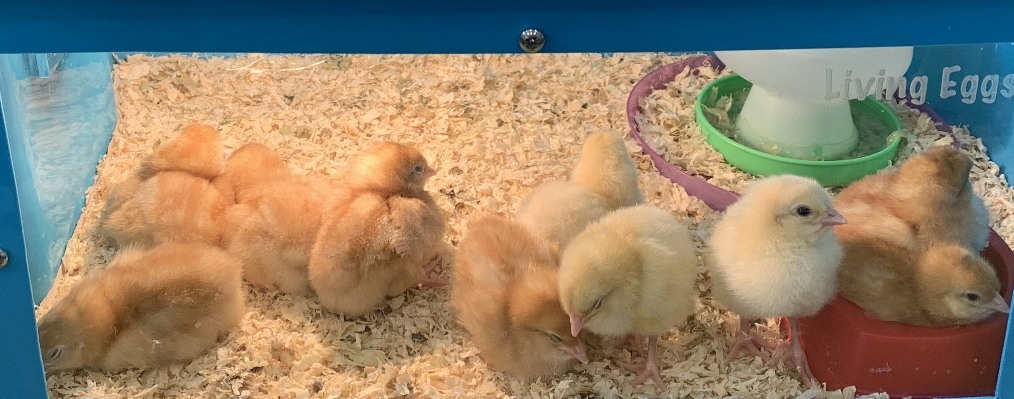Science

Intent:
Science teaching at Pyrcroft Grange Primary School aims to provide children with a strong understanding of the world around them whilst also developing the specific skills and disciplinary knowledge to help children work scientifically. As a core subject, we recognise the importance of the role of science within our curriculum to help children understand and take responsibility for the implications of science within the wider world, both today and in the future.
In order to help the children become scientifically literate individuals, at Pyrcroft Grange we aim to provide children with the substantive knowledge and investigative skills within each small step of learning. We understand that children learn best from a ‘hands on and heads on’ approach and want them to start to make sense of physical, chemical and biological processes, while knowing how to work like a scientist.
At Pyrcroft Grange Primary School, we recognise the importance of building on existing knowledge and experiences in science education, starting from Nursery through to Key Stage 2. Our science curriculum begins in the Nursery setting, where we establish strong foundations that link to the Early Years Foundation Stage (EYFS). As children progress through Reception and into Key Stage 1 and Key Stage 2, we ensure a high-quality curriculum that consistently builds on prior learning. These focus areas and topics are revisited and expanded upon as children move up through the school. For example, topics such as plants taught in Key Stage One, are taught, and revisited again in further detail as the children move up into Key Stage Two, promoting sustained knowledge.
Implementation:
At Pyrcroft Grange Primary School we utilise the rich resources from White Rose Science that allow children to progressively build their scientific knowledge and skills, underpinned by the programmes of study within the National Curriculum. These well-sequenced and progressive resources allow children to adopt a problem-solving approach to scientific enquiry, whilst reactivating prior knowledge using careful questioning, further embedding key scientific concepts.
Our science pedagogy and curriculum are based on the development of the following components:
· Inclusion of relevant and engaging enquiry activities within each series of lessons to promote children’s scientific capital, whilst enabling them to develop questions and challenge scientific ideas within the world around them.
· Where relevant, Children are empowered to plan their investigations, carry out their experiments and conclude and provide evaluations, creating a collaborative learning environment.
· Teachers are encouraged to be flexible in their planning and can adapt their input to meet both individual needs, and the needs of their cohort. Teachers are encouraged and
supported to develop their own subject knowledge and their planning, teaching and assessment of key substantive and disciplinary knowledge through teacher training sessions.
· Children are encouraged to reflect on their ability to work like scientists, with teachers regularly assessing children’s substantive and disciplinary knowledge for scientific learning outcomes through careful questioning and monitoring.
· Within each year group’s curricular, sustainability topics are intertwined to ensure that children have an awareness and an understanding of how science impacts their lives both now and in the future.
· High quality scientific vocabulary, and its meaning, is explicitly taught within each lesson from Nursery to Year 6, to allow children to communicate their scientific thinking with confidence, creating opportunities for repeated engagement and use over time.
· Engage children with trips and visits from experts, including STEM ambassadors, to promote awareness of careers within STEM through talks, extra-curricular activities, and science weeks.
· Children are guided to make cross-curricular links within their learning to develop their understanding of key concepts and scientists. Examples include reading about significant scientists as part of whole class Guided Reading sessions or writing about key concepts such as the digestive system within explanation texts in Writing lessons.
· Where relevant, children are encouraged to work outside the classroom utilising the school garden and grounds to provide a hands-on, visual, and practical experience, with opportunities for discussion and reflection.
Impact:
The impact of our high-quality science curriculum is to ensure that children acquire the relevant substantive and disciplinary knowledge to work as scientists, whilst fostering the curiosity to explore and understand the world around them. Lessons are differentiated to allow for all the children in our school to access the curriculum, enabling them to make good or better progress from their starting points. In addition, we measure the impact of our curriculum through the following methods:
· A reflection on standards achieved against the planned outcomes to track where children are on their individual learning journeys, in line with BET schools (Arbor).
· Encourage high standards, and the remembering and use of scientific vocabulary through celebration in class and across the school.
· Tracking of knowledge through observations of pupil discussions about their learning.
· Children are able to use their enquiry skills to approach investigations as they continue to grow on their scientific learning journey.



